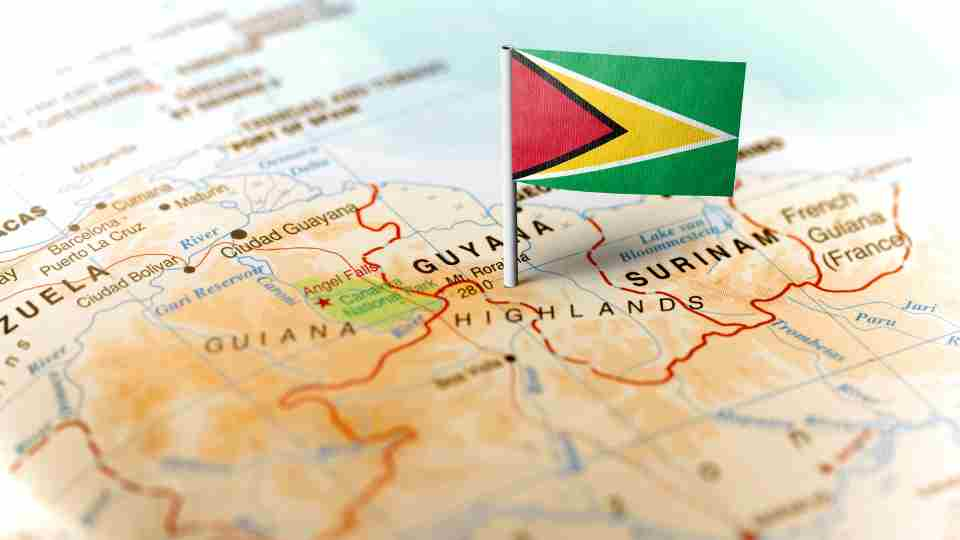AFTER the recently concluded Joint Declaration of Argyle in St Vincent and the Grenadines, the tensions between Venezuela and Guyana have eased a bit. However, it is useful to explore the basis of the dispute and how it arose.
In 1897, Guyana (then British Guiana) agreed with Venezuela (then, also, the United States of Venezuela) to engage in an arbitration to demarcate the boundary between the two states. This agreement was executed in the same year when the Treaty of Washington was concluded between the two aforementioned states.
The arbitration was duly completed in 1899, and it resulted in British Guiana being awarded the oil-rich Essequibo region. Both parties accepted the arbitral award for almost 63 years. However, the tension between present-day Venezuela and Guyana was kindled due to a posthumous statement given by an American-born international lawyer named Severo Mallet-Prevost, who represented the interests of the United States of Venezuela in the 1899 arbitration.
In essence, Mallet-Prevost stated, among other things, that it was his belief the president of the Arbitral Tribunal, Russian jurist Friedrich Martens, applied pressure on the other judges of the tribunal to come to a decision in favour of his preferred outcome of the arbitration. Accordingly, Mallet-Prevost stated that during a visit by Martens to England, a deal was struck between Britain and Russia to make an award in favour of Martens’ suggested outcome.
It was also suggested that Martens gave an ultimatum to the two American judges who were also on the arbitral panel. The American judges were in favour of the Venezuelan contention, viz, that the boundary should be drawn at the Moruca River. From this, Martens stated that if the said American judges kept with the Moruca River boundary, he would join with the other two British judges (who agreed with the British contention) to make the boundary in favour of Britain via a majority decision.
However, Martens stated he wanted a unanimous decision on a compromise line between both contentions. Accordingly, he wanted the American judges to agree with his ‘compromise line’; if they did this, Martens would have gotten the agreement from the other British judges on the compromise, thus making it the result of the award.
Firstly, it is appropriate to note that no evidence was given to support that the actual British and Russian governments were involved in affecting the outcome of the 1899 arbitration; Mallet-Prevost’s statement should not be interpreted as such. It is a statement of opinion.
Next, ‘compromises’ are a common feature of international arbitration; essentially, it is not ‘corrupt’ for arbiters to reach a decision that is a compromise between two contentions. By 1911, the Permanent Court of Arbitration (The Hague Tribunal) had delivered three awards that were compromises.
A compromise, in arbitral terms, is a decision that does not necessarily reflect the legal arguments given by either party to the arbitration. It is, therefore, not a judicial decision based on law and fact. It is rather a diplomatic decision that seeks to achieve peace between the parties.
Arguably, one of the best contributions of The Hague Tribunal, at that time, was a compromise. The Casablanca Case (1907) (France v Germany) was sent to the court for arbitration under the threat of imminent war. The court made a compromise that both parties accepted as just. It resulted in the peaceful resolution of the dispute.
It can also be said that Venezuela itself benefited from a compromise in The Orinoco Steamship Company Case (1910) (The United States v Venezuela). In that case, The Hague Tribunal disallowed a principal award of damages against Venezuela.
Thus, as an American judge once said, one of the most disagreeable things that he faced as a judge was never being able to decide against both parties before him. Sometimes compromises are required.
Recently, an experienced judge of an international tribunal reflected on the inevitable intersection between international tribunals and diplomatic relations. These tribunals, for example, are to respect the judgments and procedures of local courts when making a decision. Thus, it seems that diplomacy has its place in international arbitration.
Accordingly, the decision reached in the British Guiana and Venezuela Arbitral Award of 1899 does not exhibit impropriety to afford renegotiation. Credit is given to two articles by WC Dennis (1911, 1950). This is not independent legal advice.
Nicholas Maharaj St James



Responses